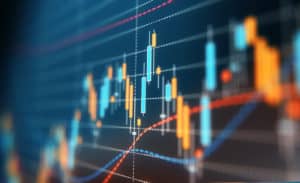At the Fixed Income Leaders Summit, advancements in technology and the growing use of data were noted as something that could help bolster trading strategies if utilised correctly, particularly for the next-generation trader.
 Panellists highlighted that this is only useful if traders know how to utilise data to improve workflows. Without that, this development could be viewed as futile.
Panellists highlighted that this is only useful if traders know how to utilise data to improve workflows. Without that, this development could be viewed as futile.
“If you think about the next-generation trader, you have to understand where this data comes from and only then can you know how to actually utilise it,” said Anju Sima, head of sales, UK and Northern Europe at MarketAxess.
“It comes down to being okay with understanding that there is a large amount of data and then finding out what can get from it before starting my process.”
Data and artificial intelligence (AI) were unanimously viewed as key developments that will impact the role of the trader by panellists, however, for it to be truly impactful, getting the right tooling integrated into the desktop – with data sanitised – would be essential.
“We’ve seen large language models that are democratised and decentralised from some of the big players,” noted Paul Weiss, chief technology officer at Adaptive Finance.
“That financial data and power will become available to a lot more sources allowing for a cohesive set of tooling which traders need.”
Discussing the generational gaps between senior traders and new hires, one panellist raised the importance of the two in helping with the adaption to new market environments and technological advancement.
“With new generations, we try to bring in the experience from more senior traders to new traders that we hire which come from financial engineering backgrounds that have a sense of programming and an understanding of this new world of data integration,” said Odin Costa, senior fixed income trader at Dimensional.
One thing that hasn’t shifted is the need for traders to have real-life relationships in order to be successful. Although the list of required skillsets continues to grow, being likeable still seems to be a very important aspect of the role.
“The trader of tomorrow should ideally be able to do coding, data analysis, have the relationship with the sell-side and their own teams internally, be an automation enabler and be able to assess technology. The more skills you have the better.
“Ultimately, you need to be personable and be someone that people want to spend all day with [given long trading hours],” concluded Peter Welsby, head of European FICC trading at Manulife Investment Management.